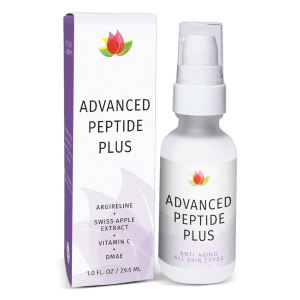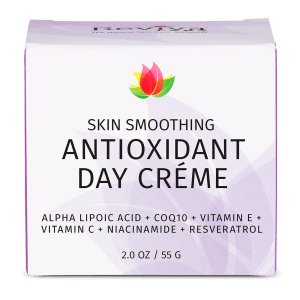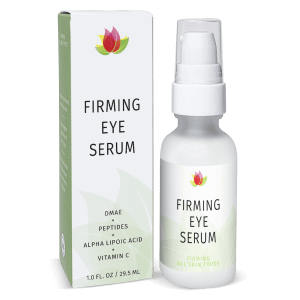The world of skincare is evolving, and with it, a heated debate has arisen: Natural skincare versus synthetic skincare. But which one is better? Is natural skincare more effective and safer? Or do synthetic skincare products offer more benefits? And what about sustainability? In this blog, we’ll delve into the details and provide an unbiased view on the topic.
Defining Natural and Synthetic Skincare
Before we delve into the specifics, it’s essential to understand what we mean by natural and synthetic skincare.
What is Natural Skincare?
Natural skincare refers to products made from ingredients derived directly from nature, including seed oils, fruit extracts, and grains like oats and rice. However, it’s important to note that the term “natural” is not regulated by the FDA meaning that there is no standard definition or criteria for natural skincare. Therefore, the term “natural skincare” can be interpreted differently by various brands, often aligning with their specific marketing strategies.
What is Synthetic Skincare?
On the other hand, synthetic skincare products are made with synthetic ingredients, which have been created in a lab, often from natural ingredients. While some synthetic skincare ingredients have developed a bad reputation, like parabens, silicones, and phthalates, not all synthetic ingredients are harmful. Some are even beneficial and loved by many, like hyaluronic acid and retinol.

Natural vs Synthetic Skincare: Which is More Effective?
The effectiveness of skincare products, whether natural or synthetic, can vary greatly. It’s not as simple as saying one is better than the other. Both natural and synthetic skincare have their pros and cons, and it’s essential to understand these to make an informed decision.
Effectiveness of Natural Skincare
Natural skincare products are often praised for their wealth of beneficial ingredients. Many natural ingredients, such as green tea, colloidal oatmeal, and rosehip oil, are backed by scientific evidence for their skin benefits. However, it’s important to note that not all natural ingredients are safe or effective. Some natural substances can be harmful or cause allergic reactions.
Effectiveness of Synthetic Skincare
Synthetic skincare is not inherently bad. Certain synthetic ingredients are beneficial and even necessary for some skincare formulations. For instance, synthetic versions of certain ingredients may provide consistency and a longer shelf life. They may also be identical to their natural counterparts on a molecular level. As with natural skincare, the effectiveness of synthetic skincare depends on the specific ingredients used and their concentrations.
The Pros and Cons of Natural and Synthetic Skincare
Both natural and synthetic skincare have their own sets of advantages and disadvantages. Understanding these can help you make an informed decision based on your specific skin needs and preferences.
Pros and Cons of Natural Skincare
Pro: Natural skincare products often contain high levels of antioxidants that help fight damaging free radicals.
Con: Not all “natural” skincare products are responsibly sourced. Some natural ingredients may be obtained through unsustainable practices or involve the exploitation of animals.
Pros and Cons of Synthetic Skincare
Pro: Synthetic skincare products offer consistency in batches and can provide kinder alternatives to natural ingredients that may be unsustainably sourced or involve animal cruelty.
Con: Some synthetic ingredients may cause skin irritation or clog pores.
Sustainability in Skincare: Natural vs Synthetic
Sustainability is another crucial factor to consider when evaluating natural and synthetic skincare. The beauty industry has a significant environmental impact, from the packaging used for products to the sourcing and manufacturing of ingredients.
Environmental Impact of Natural Skincare
The sourcing of natural ingredients can have significant environmental implications. For instance, certain plants, flowers, and trees are harvested and turned into ingredients, potentially leading to over exploitation and depletion of these resources. However, some brands work closely with their suppliers to ensure sustainable trade, enhancing biodiversity and driving environmental conservation.
Environmental Impact of Synthetic Skincare
Synthetic skincare also has environmental implications. The process of creating synthetic ingredients in a lab requires energy and resources. However, avoiding the over exploitation of natural resources is one area where lab-synthesized ingredients may have the upper hand over their natural counterparts.
The Role of Biotechnology in Sustainable Skincare
Biotechnology is ushering in a new era for skincare, offering opportunities to create effective, safe ingredients for humans and the environment. Several brands are leading the way in using biotechnology and bio-fermentation techniques to create skincare ingredients without negatively impacting the environment.
Natural vs Synthetic Skincare
In conclusion, both natural and synthetic skincare have their pros and cons, and neither one is inherently better than the other. What matters most is finding products that work for your specific skin needs, while also considering sustainability. At Reviva Labs, we’ve balanced and blended the best of natural and science for nearly five decades – focusing on what’s important, safe, effective skincare that’s good for humans and the planet too. As consumers, it’s essential to do your research, read labels, and support brands that prioritize both human and environmental health.











